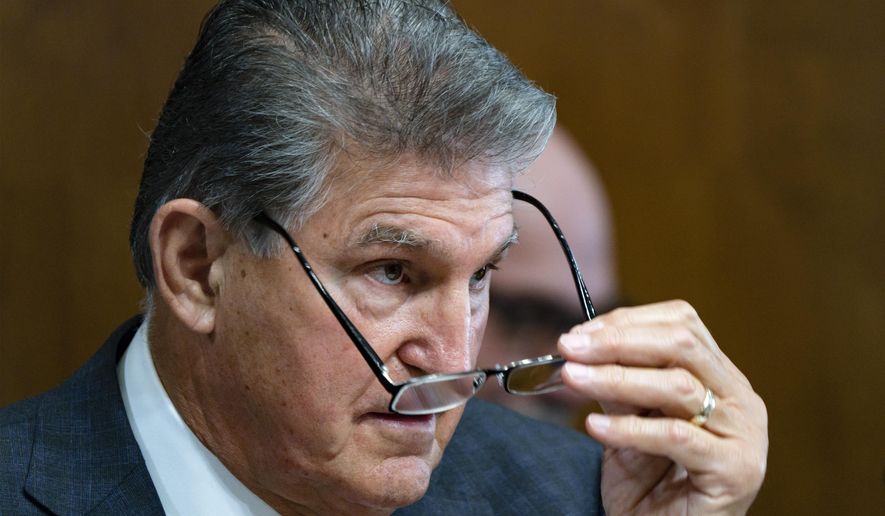Sen. Joe Manchin III on Monday said he was open to a wealth tax on billionaires to help pay for President Biden’s roughly $2 trillion social welfare and climate bill.
Mr. Manchin, a West Virginia Democrat, said it was important for every American, including the nation’s leading billionaires, to pay their “fair share.”
“I’m open to any type of thing that makes people pay that [are] not paying now,” he said. “So [for] people that don’t report income like you and I do … there has to be a way for them to pay their fair share.”
The wealth tax is the latest proposal to pay for the massive bill. Mr. Manchin has been a chief holdout on the bill.
Senate Finance Committee Chairman Ron Wyden, an Oregon Democrat, is drafting the wealth tax proposal with input from the White House and congressional leadership.
Democrats hope the plan will raise sufficient revenue to fund the more than $2 trillion in dollars in taxpayer spending they are proposing.
While details of that plan have yet to be finalized, it would tax billionaires annually on any increase in the value of their assets, like stocks and real estate. The tax would apply to individuals with assets in the billion-dollar range and those with annual incomes greater than $100 million over three years.
The proposal has been in the works for years but suddenly gained traction when conventional tax hikes in Mr. Biden’s bill hit stiff opposition from Sen. Kyrsten Sinema, a moderate Democrat from Arizona.
“She has told her colleagues and the president that simply raising tax rates will not in any way address the challenge of tax avoidance or improve economic competitiveness,” said John LaBombard, a spokesman for Ms. Sinema.
Given that Democrats plan to push the spending bill through the Senate, split 50-50 along party lines, Ms. Sinema’s opposition effectively killed the planned tax increases on the wealthy and corporations.
Apart from the new billionaires tax, Democrats are also eyeing a series of other tax hikes and budgetary measures to raise enough revenue for Mr. Biden’s domestic ambitions.
Up for consideration is a 15% global minimum tax on corporations, which would apply to overseas profits. Mr. Biden is also eager to expand enforcement measures by the Internal Revenue Service to help crack down on tax scofflaws.
Part of the expansion entails giving the IRS bank information on accounts with more than $10,000 in annual deposits or withdrawals.
“The Billionaires Income Tax is about fairness and showing the American people taxes aren’t mandatory for them and optional for the wealthiest people in the country,” Mr. Wyden said in a statement. “No working person in this country thinks it’s right that billionaires can pay no taxes for years on end, and sometimes never at all.”
Unlike capital gains, which taxes the profit made from an asset post-sale, the new surcharge would be assessed annually regardless. Individuals would be able to receive tax deductions, however, if their assets lose value over a year.
Democrats say the new tax will help ensure that everyone is paying their “fair share.” They say that billionaires have “gamed” the tax code by sitting on assets while using them as collateral for loans needed to finance their jet-setting lifestyles.
Not everyone is on board with the proposal. Some argue that it would be complicated to implement and could result in more asset offshoring. Instead, they argue Mr. Biden should stick by his initial proposal to hike the income tax on top earners and corporations.
“When you do rates, they’re efficient and they’re easily implemented. Unlike the more esoteric ideas of taxing this or taxing that, rates are simple by nature,” said House Ways and Means Committee Chairman Richard Neal, Massachusetts Democrat. “People understand them.”
• Haris Alic can be reached at halic@washingtontimes.com.




Please read our comment policy before commenting.